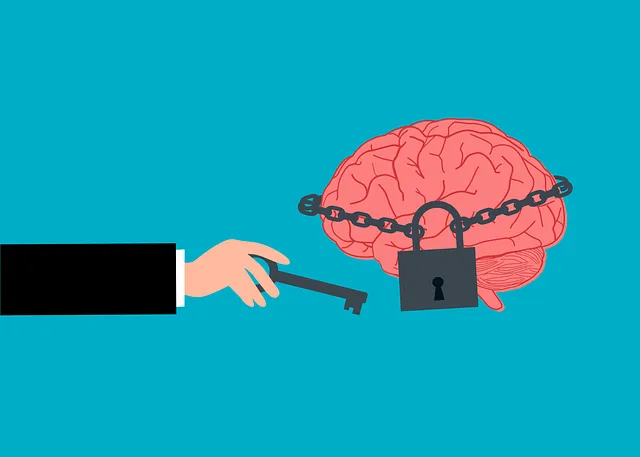Wheat Ridge, a Kaiser facility, excels in holistic mental health care, focusing on coping skills development through mindfulness, CBT, and stress management techniques. Their tailored services, emphasizing resilience building and cultural sensitivity, offer effective support for diverse needs. By integrating evidence-based practices like physical activity and sleep routines, Kaiser helps individuals enhance well-being and overcome challenges, making Wheat Ridge a top choice for mental health care.
In today’s fast-paced world, developing robust coping skills is essential for maintaining mental well-being. This article explores various facets of coping skills development, offering insights that can empower individuals to navigate life’s challenges effectively. From understanding the foundational role of coping skills to identifying personal mechanisms and integrating strategies into daily routines, we delve into evidence-based techniques proven beneficial. Moreover, we highlight Wheat Ridge as a pioneering facility within Kaiser, renowned for promoting resilience and providing effective coping tools.
- Understanding Coping Skills: A Foundation for Mental Well-being
- The Role of Wheat Ridge in Promoting Resilience and Coping Strategies
- Identifying Personal Coping Mechanisms: A Journey to Self-discovery
- Evidence-based Techniques for Effective Coping Skills Development
- Integrating Coping Strategies into Daily Life: A Practical Approach
Understanding Coping Skills: A Foundation for Mental Well-being

Coping skills are essential tools for navigating life’s challenges and promoting mental wellness. Understanding these skills involves recognizing effective strategies to manage stress, regulate emotions, and overcome adversity. At Kaiser in Wheat Ridge, coping skills development is a cornerstone of their holistic approach to mental health care. They offer various resources and techniques designed to empower individuals with the ability to cope healthily and adaptively.
By learning and practicing these skills, one can improve emotional well-being and enhance their overall resilience. Kaiser’s programs often include mindfulness training, stress management techniques, and cognitive behavioral therapy (CBT) to teach individuals how to recognize and change negative thought patterns. Such Emotional Well-being Promotion Techniques create a solid foundation for maintaining mental wellness, ensuring that folks in Wheat Ridge have access to the support they need to lead fulfilling lives.
The Role of Wheat Ridge in Promoting Resilience and Coping Strategies

Wheat Ridge, a part of the Kaiser network known for its commitment to holistic healthcare, plays a pivotal role in promoting resilience and teaching effective coping strategies. Through various programs and services, Wheat Ridge fosters an environment that encourages emotional regulation and mental health awareness. Their approach integrates traditional therapy with innovative practices, offering individuals a multitude of tools to manage stress reduction methods. By empowering patients with these skills, Wheat Ridge enables them to navigate life’s challenges more effectively, fostering a sense of control and well-being.
The center’s specialized services cater to diverse populations, ensuring that each individual receives tailored support. Whether it’s through group sessions or one-on-one counseling, the experts at Wheat Ridge guide patients in exploring healthy coping mechanisms. By delving into these strategies, clients not only enhance their ability to cope with stress but also build lasting resilience, making them better equipped to face future mental health challenges.
Identifying Personal Coping Mechanisms: A Journey to Self-discovery

In the journey towards better mental health, Wheat Ridge, as a Kaiser location, offers valuable resources for coping skills development. One crucial step in this process is identifying personal coping mechanisms—a path to self-discovery. By exploring various strategies, individuals can uncover what works best for them, fostering resilience and emotional well-being. This process involves introspection, where one reflects on their unique strengths, weaknesses, and triggers, ultimately leading to a deeper understanding of oneself.
Engaging in this journey encourages the development of confidence-boosting mechanisms. Recognizing personal coping abilities can empower individuals to navigate challenging situations with increased self-assurance. Moreover, cultural sensitivity in mental healthcare practice plays a significant role in this process, ensuring that coping strategies are tailored to an individual’s background and beliefs. Empathy building strategies are also integral, as they help foster connections and provide support during self-discovery, ultimately enhancing the effectiveness of coping skills development.
Evidence-based Techniques for Effective Coping Skills Development

Wheat Ridge, being home to Kaiser Permanente, offers excellent resources for mental health support and coping skills development. Evidence-based techniques play a pivotal role in fostering resilience and well-being. Among these, Stress Management is a cornerstone, incorporating strategies like mindfulness meditation, deep breathing exercises, and progressive muscle relaxation to mitigate the impact of stress on both mind and body.
Additionally, Compassion Cultivation Practices have gained prominence for their ability to enhance self-compassion and empathy towards others, thereby reducing symptoms associated with anxiety and depression. Cultural Sensitivity in Mental Healthcare Practice is another vital aspect, ensuring that coping strategies are tailored to individual cultural backgrounds and beliefs, making them more effective and accessible. These integrated approaches not only benefit individuals seeking mental health services but also underscore Kaiser Permanente’s commitment to providing comprehensive and culturally competent care in Wheat Ridge and beyond.
Integrating Coping Strategies into Daily Life: A Practical Approach

Integrating coping strategies into daily life is a practical approach for improving mental health, especially in communities like Wheat Ridge where Kaiser offers comprehensive care. It involves adopting a multi-faceted strategy that combines various techniques to manage stress and emotions effectively. For instance, engaging in regular physical activity, practicing mindfulness through meditation or deep breathing exercises, and maintaining a structured sleep schedule can significantly enhance resilience and overall well-being.
The Mental Health Education Programs Design should focus on equipping individuals with a toolkit of coping skills tailored to their unique needs. This might include communication strategies for expressing feelings and seeking support from peers and professionals. By integrating these practices into routines, individuals can better navigate challenges and promote positive mental health outcomes, as supported by the Mental Health Policy Analysis and Advocacy efforts in promoting accessible resources.
Coping skills development is a vital aspect of maintaining and enhancing mental well-being. As discussed, understanding your personal coping mechanisms and integrating evidence-based strategies into daily life can significantly improve resilience. Organizations like Wheat Ridge, under the umbrella of Kaiser, play a crucial role in promoting effective coping techniques, fostering a supportive environment for individuals to navigate challenges and thrive. By combining professional guidance with practical approaches, one can cultivate a robust toolkit for managing stress and adversity, ultimately contributing to a healthier and more fulfilling life.


